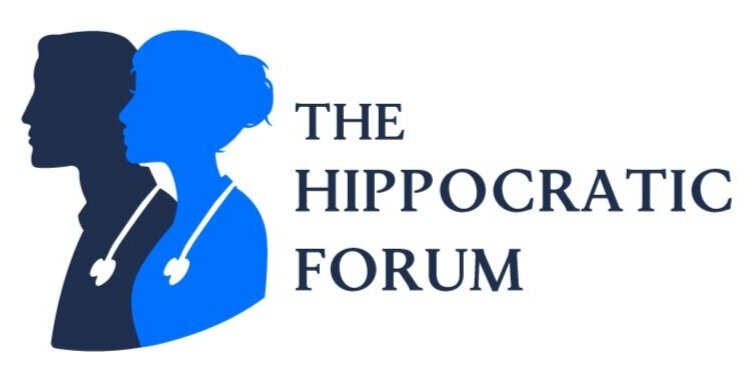Why The Hippocratic Forum?
If all of philosophy is a footnote to Plato, it might be said that much of contemporary biomedicine has its own philosophical roots in the thought of Rene Descartes. Theologian Gerald McKenny argues that Descartes, along with Francis Bacon, helped to establish the idea that we must harness medical science and the world it interrogates to seek relief from our “human condition,” fraught with disease and suffering.
Even more powerful than this idea, though, is Descartes’s theory of dualism; the belief that the body and the soul can be cleanly separated as distinct entities. Nearly four hundred years after Descartes, this view of the person still holds purchase, particularly when we encounter illness.
As a current resident, I find this temptation toward dualism ever-present. If I can merely home in on the pathology—on the organ or microbe or process at play—my work is simplified, translated into a problem in my note with a clean and precise accordant plan. To truly lean in and engage the human element of the suffering patient before me—this complicates things. Such an acknowledgement of the soul of my patient, and a recognition that this soul cannot be cleanly disentangled from the leg or liver monopolizing my attention, feels prohibitively burdensome.
And yet the irony I find is that my work can only be fulfilling to the degree that I commit myself to this labor. Absent such an effort, Descartes wins, and I revert to the role of technician that the Hippocratic Oath warned against more than two millennia ago.
What Descartes got wrong, and what I am arguing still haunts contemporary trainees, is his view of the person, or anthropology. He falsely dichotomized people as disjointed amalgams of “body” and “soul,” a distinction which thwarts our ability to appreciate the patients in front of us as what they are, fully synthesized embodied souls.
Yet the response I am suggesting, that of “committing [one]self” to rejection of this dichotomy, is doomed for failure unless we reject a second false anthropology which haunts modernity this side of Descartes; that I exist as a stand-alone individual, and that I can do this alone.
In my better moments, when I see the patient before me rightly, as a sick and frightened person with a story, and not merely a combination of lab values and imaging findings, it is almost always because I am reminded of this by others. It is through the examples of interns, nurses, and fellow clinicians I work alongside where I recognize my tendency to forget.
This, in a word, is what the Hippocratic Forum offers: a reminder. It is through conversation with people from moral communities who share a high view of the person and the physician’s attendant moral commitments that the opportunity for renewal resides. In that light, we hope this forum might serve as an ongoing conversation among friends who share their stories and experiences to encourage, question, and above all else, remind—of whom we are serving and how to flourish in so doing.
Artwork: Asclepius, god of medicine
